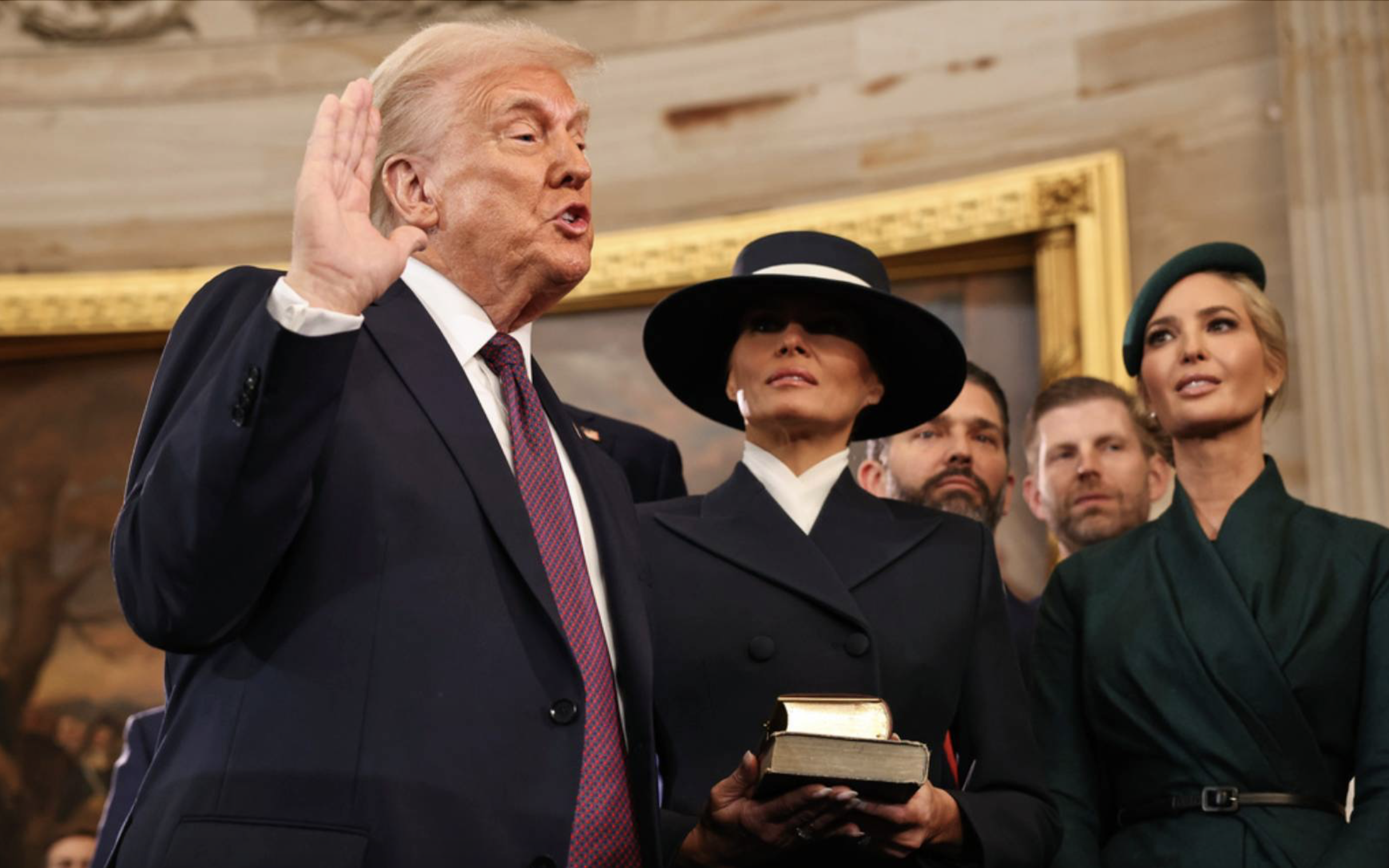Trump’s ‘EV Mandate’ Does Not Exist. But Car Dependency Does — And We Can End It
The new president has sworn to unravel Biden's EV plans. But would they have been enough to decarbonize the transportation sector without confronting how much Americans drive?

What’s up with Melania’s hat?
|Photo: FMT, CCStay in touch
Sign up for our free newsletter
More from Streetsblog USA
Urban Truth Collective: Straight Talk About The Joy Of Cities In An Age Of Disinformation
The Three Tenors of Urbanism explain their latest effort: The Urban Truth Collective.
Study: AVs Will Super-Charge VMTs
Yes, robocars address many of our traffic violence troubles, but they may fail to uproot the deeper rot of car dependency that has hollowed out our society
Thursday’s Headlines Try New Arguments
An urban planner makes a conservative economic case for tearing down freeways running through cities.
Three Theories About Why U.S. Car Crash Deaths Are Plummeting
Car crash deaths are down by 12 percent, a top group estimates — but why?
Wednesday’s Headlines Don’t Got a Fast Car
If Tracy Chapman had saved "just a little bit of money" these days, she'd be in trouble.
Dear Trump: the Future Belongs to the Efficient
Trump abandoned climate protection goals claiming that cheap fossil fuel helps consumers and the economy. A mobility-focused analysis shows that he is wrong: resource efficiency is the key to health, economic success and happiness.





